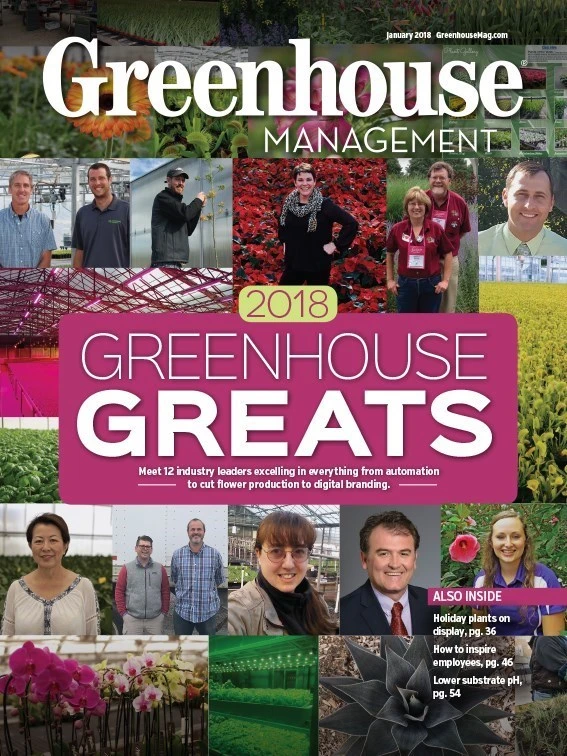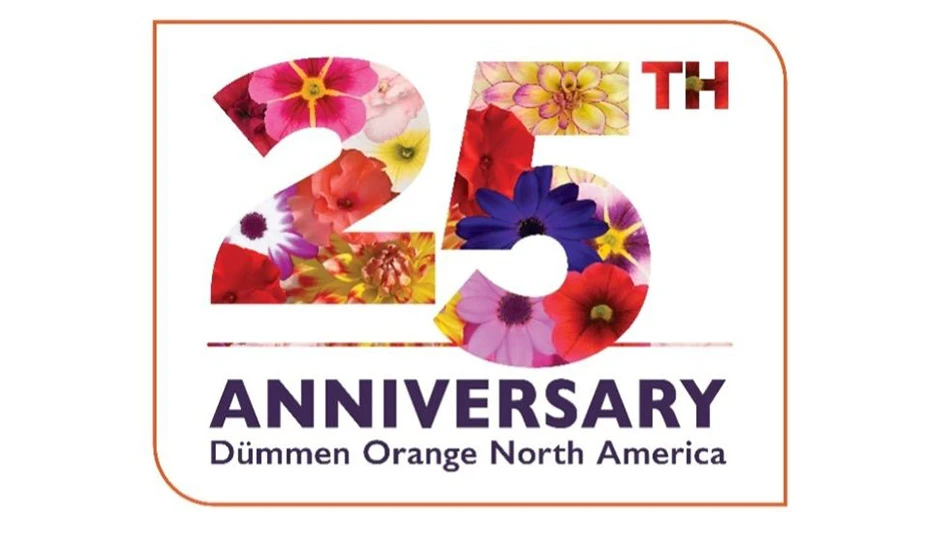
Editor’s Note: Letters to the editor are subject to edits for grammar and space.
May I ask a favor, to have three minutes of your time to consider a problem in our industry that no one is talking about? I’d like to ask you to read this through to the end, even if it’s a little uncomfortable. Perhaps especially if it’s uncomfortable.
More than 20 years ago, I was on the staff of a national nonprofit organization. A board member — the CEO of a Fortune 500 company — showed up at my hotel room door late at night, under ridiculously flimsy pretenses, seeking sexual gratification. It was neither my first nor last experience with questionable conduct in a professional environment, but it was one of the most blatant.
I’ve told that story a lot through the years. It happened shortly before I came to work with the green industry, an industry that felt kinder, gentler, safer. We are good people.
Surely by now, you’ve heard about the “Harvey Weinstein effect.” We are in a bit of a cultural watershed moment. Daily, fresh stories of sexual harassment, misconduct, rape, assault and some just plain poor taste are emerging. Stories of men abusing their position of power over women (and sometimes, over other men as well). These stories are coming from so many industries — politics/government, journalism, entertainment, technology, hospitality, finance, manufacturing.
Here in the green industry, we’re an industry rooted in family values, farming, agriculture, passion for nature, faith. All of that is true — I’ve seen it. I have seen the very best of us through these 20 years. Some of my dearest friends, adopted family and my husband come from this industry.
Sadly, I have also seen some of the worst of us. Yes — We are people of faith, people of the land, proud family business owners, self-identified plant geeks, people who are kind and generous and willing to help our fellow businesses in an emergency. We are also an industry made up predominantly of men in positions of leadership. And thus, we are not immune. Looking broadly at the industry, I also know that these are our uncomfortable truths:
- There are “handsy” guys at pretty much every event that I have ever attended. A too-long hug, a roaming hand when photos are being taken, an uninvited shoulder massage, a blatant groping.
- There are customers at tradeshow booths or in your sales yard, leering at women with thinly veiled come-ons, trying to cajole favors from your sales reps or office staff, or who linger just a little too long, tell a provocative joke, seem just a little too suggestive, stand just a little too close.
- There are truck drivers who make inappropriate comments or wolf-whistle to the women on your staff when they deliver.
- There are people calling women they work with (or the waitress at the restaurant) “baby, honey, sweetie” without thinking. Are they coming on to us, or can they just not be bothered to remember our names?
- There are married men attending events (the “tradeshow syndrome”) who suddenly flirt shamelessly … making women who they work with professionally all year long uncomfortable. There are open extramarital affairs going on — wink, wink: “What happens in Vegas stays in Vegas.”
Every one of those examples is a true story, or many true stories, from a woman in this industry.
Far too often, all of this behavior is “brushed off” as, “Oh, that’s just (INSERT NAME HERE). He doesn’t mean any harm. Maybe he’s had one too many drinks. Don’t let it bother you.”
But it should bother us — all of us — men and women alike. As a society, we need to stop apologizing for the creeps. We need to stop brushing bad behavior under the rug. We — the green industry — need to open our eyes to the fact that we are not immune.
Like so many women, I am usually sufficiently smart/strong/confident to get out of a difficult situation — to ease away, to make light of it, to get myself into a safer place. I have always been fortunate enough to feel secure that my job wasn’t in jeopardy for telling (INSERT NAME HERE), “NO.” But I lose sleep at night thinking about the woman making $12 an hour who is too meek to push back, who fears reporting her coworker/supervisor because it might mean losing the job that keeps a roof over her kids’ heads. I write this today for her. Because we can’t fix a problem we can’t discuss.
Back when I managed events for ANLA, there was a pre-meeting before every travel event. At every one, we made it a point (with then-EVP, Bob Dolibois, leading the charge) to tell our staff team that there was absolutely no point at which the organizational ethic of “member service” should be put ahead of your own individual right to safety, comfort and personal space. We made it clear that the organization “had their back” if they needed to take any measure to step out of an uncomfortable situation. Period. No questions asked. It was our job to create a safe work environment for our team.
Gentlemen of the Green Industry (and yes, the vast majority of you truly are gentlemen), I want to let you in on a secret: we ladies have an unwritten code about these kinds of things. I could walk up to a strange woman in a bar and give her a look, whispering, “This guy is creepy, can I sit with you?” and she will treat me as if we were long–lost sorority sisters. But this industry doesn’t have enough women “on the scene.” So through the years, one of my most effective coping mechanisms was to create a massive “adopted family” for myself: a whole cadre of “uncles” and “big brothers” who I could count on in an instant if I needed support at an event, if I needed a backup, an escape, an escort, a place. Which is great … but it would have been far better to have never felt like I needed it.
The commercial horticulture industry is still very much male-dominated. Translation: Statistically, we have more potential abusers among us, and fewer safer spaces.
As a society, we need to stop apologizing for the creeps. We need to stop brushing bad behavior under the rug.
But I think we can be different. I’d like to look at that same statistic as having more allies: more “big brothers” and “adopted uncles” looking out for the women around us. (I also believe that the industry would benefit from having more women in leadership positions, but that’s a different topic.)
Maybe you’re all too familiar with these stories. Or maybe this is all new to you, and a bit shocking.
(Did you see that “(INSERT NAME HERE)” above? While every one of those examples is true, I didn’t write this to name names, or call out any one person or situation specifically. But honestly, I don’t know any woman — in this industry or otherwise — who hasn’t had an uncomfortable experience at some point in her life.)
If you haven’t heard these stories, if you’re struggling to believe me, I encourage you to start a conversation: ask the women around you to share their stories. I’m asking you to pay a little more attention to predatory, tasteless or just “walking the fine line of inappropriate” behavior going on around you. (Also, while policy manuals and HR aren’t a “silver bullet,” this is a great time to make sure your company has a robust policy and process around handling sexual harassment and misconduct.)
None of us are completely innocent here, we’re all human, we’ve all laughed at an inappropriate joke, made a comment that could have been misconstrued, said something without thinking and realized, “Oh, that probably didn’t come out right.” Times are changing. We keep evolving. And as Maya Angelou famously said, “When we know better, we do better.”
Women can’t solve this. This is a problem that men are uniquely positioned to fix, and it’s simple: If you see something, say something. Step into the situation. Offer to get someone home (or up in an elevator) safely. Say, “Hey, that’s not cool” to the guy getting handsy or with the tasteless jokes. If you’re not part of the problem, you need to be part of the solution.
If you’re a man still reading this (thank you) — as we turn the calendar into 2018, I’d ask you simply to think a little bit about how you can be an even better “big brother” or “adopted uncle” in the year ahead.
No, we aren’t immune. But I believe we can be different.
Thanks for listening. I also hope you’ll be willing to add your voice to the conversation.

Kellee (Magee) O’Reilly

Explore the January 2018 Issue
Check out more from this issue and find your next story to read.
Latest from Greenhouse Management
- Flexible fungicides
- Super Charged Moon Juice from Moon Valley Nurseries now available nationally
- 2025 Proven Winners Horticulture Scholarship applications now open
- How to improve inventory and shipping management in the greenhouse
- Leading Women of Horticulture: Anna Ball, Ball Hort, and Terri McEnaney, Bailey Nurseries
- GM CEA HERB Part 2: A guide to increasing the sowing density of culinary herbs
- GM CEA HERB Part 1: Best practices for producing culinary herbs in controlled environments
- USDA fires experts on invasive pests, including Asian citrus psyllid, chilli thrips





